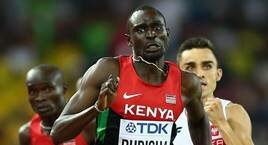I. Introduction
Sports, at their core, are a celebration of human achievement and competition. In the grandest sporting stage of all, the Olympic Games, the pursuit of excellence is paramount. However, what ensures that the spirit of fair competition prevails in these global events? The unsung heroes behind the scenes, judges and referees, play an essential role in making the Olympics the epitome of fair play and integrity. In order to receive high marks from the judges at competitions, a young athlete needs to be responsible for physical and moral training, of course, while studying in college, they were used to receiving high marks for their essays or term papers, because they often used the opportunity to buy an essays at https://writingscentre.com/how-to-buy-an-essays/.
II. The Importance of Fair Play
The Olympic Games are a testament to the pursuit of sporting excellence. It's an arena where athletes from all corners of the world compete on a level playing field, and the role of judges and referees in ensuring fair play cannot be overstated. They are the guardians of the rulebook, ensuring that every athlete gets a fair chance to showcase their skills. The decisions they make have a direct impact on the integrity of the Olympic Games.
III. Who Are the Judges and Referees?
In various Olympic sports, judges and referees serve different roles. In gymnastics, for example, judges evaluate the precision and artistry of routines. In boxing, referees are responsible for ensuring the safety and fairness of the match. These officials are not mere enthusiasts; they are highly qualified experts in their respective fields, with extensive training and certifications. Renowned Olympic judges and referees, like gymnastics' Nadia Comăneci or boxing's Mills Lane, are revered figures in the sports world.
IV. Rules and Regulations
The backbone of Olympic competitions is a set of rules and regulations that govern every sport. Judges and referees enforce these rules meticulously. They act as impartial arbiters, ensuring that athletes adhere to the rules and penalizing any violations. This commitment to the rulebook is what makes Olympic events the ultimate tests of skill and sportsmanship.
V. Scoring and Evaluation
Scoring in Olympic sports is a complex and often subjective process. In events like figure skating or diving, judges assign scores based on a combination of technical and artistic elements. These judgments are subjective and come with their own set of challenges. The pressure on judges to make accurate assessments is immense, and their decisions can sometimes be met with controversy.
VI. Technology and Innovation
The world of sports officiating is not immune to technological advancements. Video replay, electronic sensors, and even artificial intelligence are playing increasingly important roles in ensuring fair play. These technological innovations assist judges and referees in making accurate decisions. However, their use has sparked debates, as purists argue that too much reliance on technology can take away from the human element of officiating.
VII. The Human Element
Judges and referees are not faceless entities in the background. They are human, with emotions and vulnerabilities. They face enormous pressure and scrutiny from athletes, fans, and the media. Their decisions can determine the fate of an athlete's lifelong dream. Despite the challenges, judges and referees remain dedicated to their roles, driven by a deep love for their sport and a commitment to ensuring fair competition.
VIII. The Role of Judges and Referees in Controversies
Throughout Olympic history, there have been instances where judging decisions led to controversies. The infamous 2002 Winter Olympics figure skating scandal, where allegations of vote-trading marred the sport, is a notable example. These controversies have not gone unnoticed, leading to rule changes and reforms aimed at increasing transparency and fairness in decision-making.
IX. Behind the Scenes
Peering behind the curtain of an Olympic competition reveals a world of meticulous preparation and teamwork. Judges and referees meticulously review the rules and regulations, discuss procedures, and collaborate to ensure consistency. The uncelebrated hard work that goes into each event often goes unnoticed but is crucial for a successful competition.
X. The Future of Officiating in the Olympics
The future of officiating in the Olympics is not stagnant. It's evolving to embrace technology and data analytics, allowing for more accurate and transparent decisions. As the world changes, the Olympic Committee is adapting to modern officiating trends, aiming to maintain the highest standards of fairness and integrity.
XI. Conclusion
In the grand spectacle of the Olympic Games, judges and referees are the unsung heroes, working diligently to ensure that fair play prevails. Their expertise, commitment, and the integrity they uphold are fundamental to the success of the Olympics. As spectators, athletes, and enthusiasts, it's crucial to appreciate and respect the hard work of judges and referees, for they are the guardians of the Olympic spirit and the embodiment of sportsmanship. In doing so, we celebrate not only the athletes but also the invisible champions of fair play.

